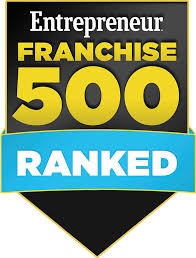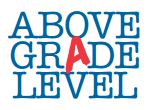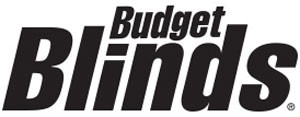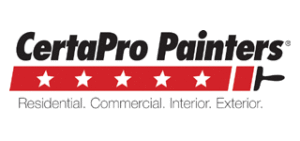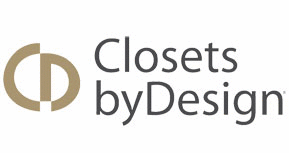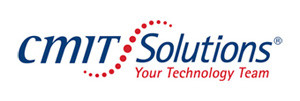Starting a franchise can be an excellent way to run your own business while benefiting from an established brand and proven business model. But before you dive in, it’s essential to understand the steps, costs, and strategies involved. Whether you’re wondering how to start a franchise business, how much to start a franchise, or what do you need to do to start a franchise, this guide will walk you through the key points.
What Is a Franchise and How Does It Work?
A franchise is a business model where an individual (franchisee) purchases the rights to operate a business using the branding, systems, and support of an established company (franchisor). The franchisee pays fees and follows specific guidelines to ensure consistency and success.
Franchises exist in various industries, including food service, retail, fitness, and home services. Understanding how the model works is the first step before deciding if it’s the right fit for you.
How to Start a Franchise Business
If you’re considering starting a franchise, here are the essential steps to take:
-
Research Franchise Opportunities
- Look into different industries and brands.
- Compare the best franchises to start based on profitability and demand.
-
Determine Your Budget
- Figure out how much you need to start a franchise and explore financing options.
- Consider initial franchise fees, real estate, equipment, and working capital.
-
Evaluate Franchise Agreements
- Carefully read the Franchise Disclosure Document (FDD).
- Consult with a lawyer to understand the terms and obligations.
-
Secure Financing
- Use savings, loans, or SBA financing to cover startup costs.
- Some franchisors offer in-house financing options.
-
Choose a Location
- If required, find a location that meets the franchisor’s criteria.
- Conduct market research to ensure a strong customer base.
-
Get Training and Support
- Most franchisors provide training programs to ensure consistency.
- Utilize marketing and operational support to grow your franchise.
-
Launch and Grow Your Business
- Implement the franchisor’s business model and marketing strategies.
- Focus on customer service and brand consistency.
How Much Does It Cost to Start a Franchise?
The cost of starting a franchise varies widely depending on the industry and brand. Here are the primary costs involved:
- Franchise Fee: Typically ranges from $10,000 to $100,000.
- Real Estate and Build-Out Costs: Can range from $50,000 to $500,000.
- Equipment and Inventory: Varies based on business type.
- Working Capital: You may need $20,000 to $100,000 to cover early expenses.
- Marketing and Royalty Fees: Ongoing costs that can range from 4% to 12% of revenue.
What Do You Need to Do to Start a Franchise?
To set up a franchise successfully, you need to:
- Understand the legal and financial requirements.
- Follow the franchisor’s system and training.
- Hire and train employees if necessary.
- Develop a marketing strategy to attract customers.
How Do You Buy Into a Franchise?
Buying into a franchise involves selecting the right opportunity, applying to become a franchisee, and securing financing. Here’s what the process looks like:
- Find a Franchise That Fits Your Goals
- Submit an Application to the Franchisor
- Review the Franchise Disclosure Document (FDD)
- Attend a Discovery Day to Learn More
- Sign the Franchise Agreement and Pay the Fees
- Begin Training and Setup
Best Franchises to Start in 2025
Some of the best franchises to consider include:
Food & Beverage Franchises
- McDonald’s – A global fast-food giant with strong brand recognition.
- Dunkin’ – A coffee and donut franchise with a loyal customer base.
- Chick-fil-A – A high-profit franchise known for exceptional service.
- Jersey Mike’s Subs – A fast-growing sandwich chain with strong community engagement.
- Smoothie King – A health-conscious option in the booming smoothie industry.
Retail & E-Commerce Franchises
- 7-Eleven – A well-established convenience store with a proven business model.
- The UPS Store – A leading shipping and printing service franchise.
- Ace Hardware – A trusted brand in home improvement and retail.
- Dollar General – A recession-resistant retail franchise with strong demand.
- Anytime Fitness – A 24/7 gym franchise capitalizing on the fitness trend.
Home & Automotive Services
- Servpro – A top choice for disaster restoration services.
- Merry Maids – A residential cleaning franchise with a strong brand presence.
- Chem-Dry – A low-cost carpet cleaning franchise with recurring revenue.
- Meineke Car Care Center – A recognized name in the auto repair industry.
- TWO MEN AND A TRUCK – A moving franchise with growing demand.
Health & Wellness Franchises
- Massage Envy – A membership-based massage and wellness franchise.
- The Joint Chiropractic – A fast-expanding chiropractic care franchise.
- Orangetheory Fitness – A high-energy workout franchise with a dedicated following.
Education & Childcare Franchises
- Kumon – A leading math and reading tutoring franchise.
- The Learning Experience – A childcare and early education franchise with high demand.
These franchises offer strong growth potential, proven business models, and brand recognition, making them ideal choices for entrepreneurs in 2025.
Pros and Cons of Starting a Franchise
Pros:
- Proven business model with brand recognition.
- Ongoing support from the franchisor.
- Easier access to financing.
Cons:
- High initial costs and ongoing fees.
- Less creative control compared to independent businesses.
- Franchise agreements come with restrictions.
Conclusion: Is Starting a Franchise Right for You?
If you want to be your own boss but prefer the structure of an established brand, starting a franchise can be a great path. However, it’s crucial to do thorough research, understand the costs, and follow the franchisor’s guidelines to increase your chances of success. With the right approach, franchising can be a rewarding and profitable business venture.


 Most small businesses maintain incomplete financial records that don’t offer enough clarity for buyers to make informed decisions. Tax returns typically underreport income to minimize tax liability and confuse the business’s financial health. Additionally, relying on an owner to have implemented the best practices does not compare to a franchise. A franchise has proven its business model on multiple franchised units and has vast experience in different markets to continually make refinements to deliver the best results.
Most small businesses maintain incomplete financial records that don’t offer enough clarity for buyers to make informed decisions. Tax returns typically underreport income to minimize tax liability and confuse the business’s financial health. Additionally, relying on an owner to have implemented the best practices does not compare to a franchise. A franchise has proven its business model on multiple franchised units and has vast experience in different markets to continually make refinements to deliver the best results. There are ample low-cost franchise resales, but you must dig a bit to find them. We researched and found solid franchises that will all eventually end up in the franchise-resale market. You will have to contact the owner directly to see if there is any interest in selling. Franchise resales take some work to find, but they are hard to beat when you do. Franchises don’t put a for sale sign in the front yard like a house. They prefer a discrete transaction where the general public doesn’t even know that it was ever for sale. It’s terrible for the reputation and viability of the franchise if franchisees are going out of business or being sold at a high rate. This would not reflect well on the health of the franchise.
There are ample low-cost franchise resales, but you must dig a bit to find them. We researched and found solid franchises that will all eventually end up in the franchise-resale market. You will have to contact the owner directly to see if there is any interest in selling. Franchise resales take some work to find, but they are hard to beat when you do. Franchises don’t put a for sale sign in the front yard like a house. They prefer a discrete transaction where the general public doesn’t even know that it was ever for sale. It’s terrible for the reputation and viability of the franchise if franchisees are going out of business or being sold at a high rate. This would not reflect well on the health of the franchise. 